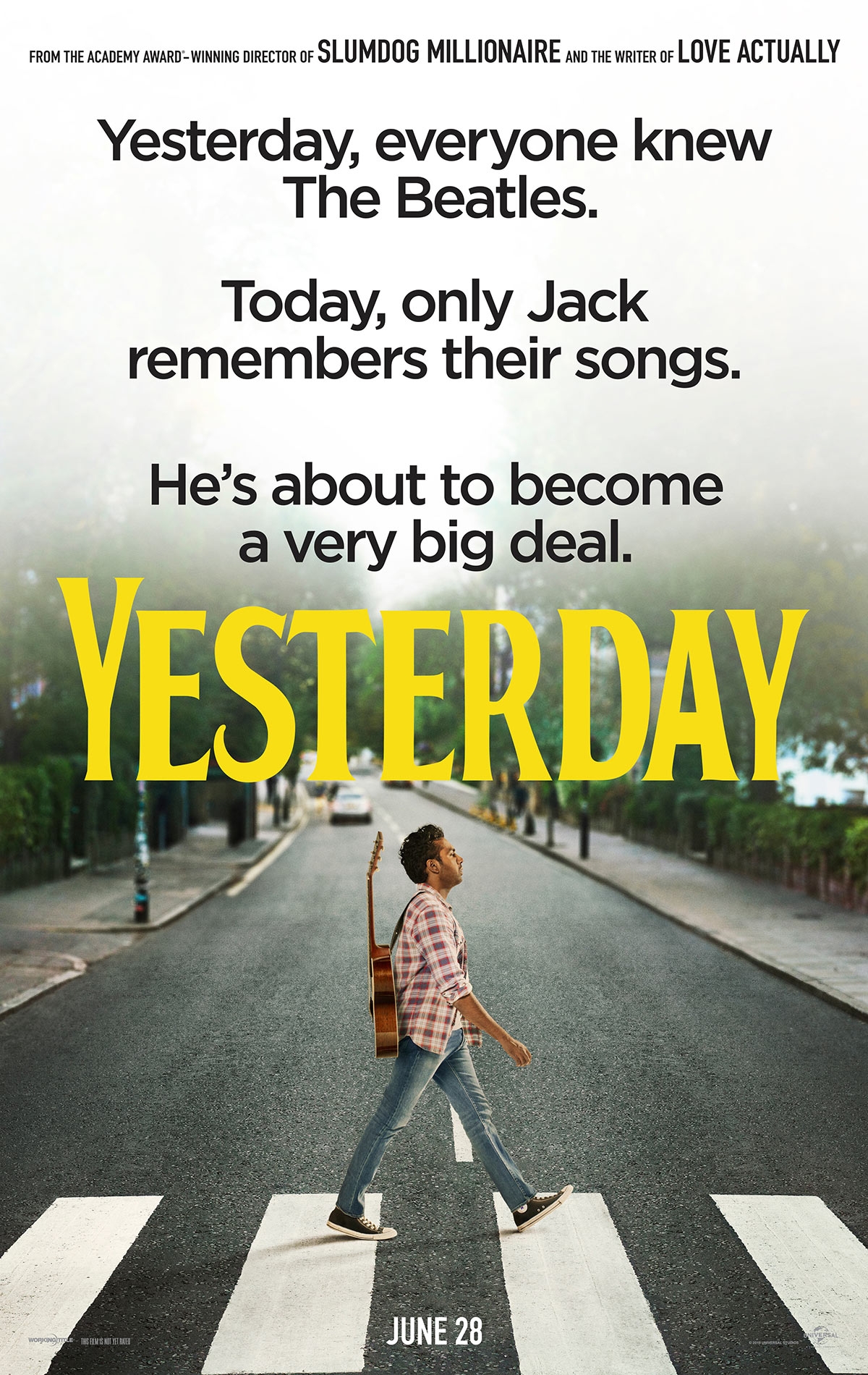Have you ever stopped to really think about the word "yesterday"? It seems so straightforward, doesn't it? Just the day before today. Yet, when you start to poke around, you find that this single word, so commonly used, actually sparks a surprising number of questions about how we speak, how we write, and even how we understand time itself. So, too it's almost, this exploration of "yesterday" goes beyond just its simple definition.
It's fascinating, isn't it, how a word we use every single day can hold so many little traps or tricky spots for language learners and native speakers alike? From its proper spelling to how it plays with different verb tenses, "yesterday" is, in a way, a little linguistic puzzle. We often just say it without a second thought, but then we might wonder if we're saying it just right, or if there's a better way to phrase things.
This article will take a close look at "yesterday," exploring its various uses, clearing up common mix-ups, and even tackling some fun word riddles. We'll get into the nitty-gritty of how this word works in our sentences, making sure you feel much more confident about using it. You'll, like your, discover that even the simplest words have a lot to teach us about language.
Table of Contents
- The Many Faces of Yesterday: More Than Just a Day Gone By
- Spelling It Out: 'Yesterday' Not 'Yesturday'
- Yesterday as an Adverb: When Did It Happen?
- Talking About the Past: Verbs and 'Yesterday'
- Common Questions About 'Yesterday' in Conversation
- "I Was Being in London Yesterday": Is It Right?
- "I Saw Her Yesterday": Getting It Just Right
- "Yesterday in the Afternoon": A Bit of a Chatty Phrase?
- The Tricky Time Puzzles of 'Yesterday'
- "Tomorrow is Yesterday Yesterday is Tomorrow": Unraveling the Riddle
- Age Riddles and 'Yesterday': A Simple Calculation
- Beyond the Basics: Deeper Dives into 'Yesterday'
The Many Faces of Yesterday: More Than Just a Day Gone By
When we talk about "yesterday," we're usually pointing to a specific time. But how we point to it, and what words we use with it, really matters. There's a lot more to this simple word than you might first guess, especially when we consider how it fits into our sentences. It's almost like a chameleon, changing its role slightly depending on where it sits.
Spelling It Out: 'Yesterday' Not 'Yesturday'
One of the very first things to get right about this word is how to spell it. It might seem like a small detail, but getting it wrong can make your writing look a bit off. As a matter of fact, "yesturday" would be a flat out incorrect spelling of the word "yesterday." The correct version has that "e" in the middle, making it clear and proper. So, it's just "yesterday," plain and simple.
Yesterday as an Adverb: When Did It Happen?
Often, "yesterday" acts as an adverb, telling us *when* something happened. If you say, "yesterday we visited the zoo in Port of Spain," then yes, that is the adverb use of the word "yesterday." It's telling you precisely when the visiting took place. This is a very common way we use the word, adding time details to our stories. Basically, it sets the scene for the action.
Talking About the Past: Verbs and 'Yesterday'
Because "yesterday" points to a time that has already gone by, it naturally pairs with verbs that show past actions. You might hear someone say, "'yesterday' indicates past time but 'send' is the present tense of the verb." This means you wouldn't say "I send a letter yesterday." That just doesn't sound right, does it? It is not idiomatic to use the perfect tense with "yesterday" either, like "I have sent a letter yesterday." The past tense should be used instead. For example, you would say, "I sent a letter yesterday." This keeps your sentence clear and correct, fitting the time frame of "yesterday."
Common Questions About 'Yesterday' in Conversation
Even when we know the basic rules, some phrases with "yesterday" can still make us pause. Sometimes, what sounds okay in a quick chat might not be quite right in more formal speaking or writing. We often hear different ways people put words together, and it's good to know what's generally accepted.
"I Was Being in London Yesterday": Is It Right?
You might wonder, "Is it correct to say 'I was being in London yesterday'?" Most of the time, this phrasing isn't quite what we'd use. While "was being" can show a continuous action in the past, for simply stating your location, we usually say something much simpler. For instance, "I was in London yesterday" gets the point across clearly and naturally. So, it's pretty much about choosing the most direct way to say it.
"I Saw Her Yesterday": Getting It Just Right
When you want to talk about seeing someone on the day before today, the correct version is "I saw her yesterday." This sentence is clean and perfectly understandable. It uses the simple past tense of "see," which is "saw," and pairs it directly with "yesterday." This is a good example of how to combine a past action with the time it happened. You know, it just flows well.
"Yesterday in the Afternoon": A Bit of a Chatty Phrase?
People sometimes ask, "Is 'yesterday in the afternoon' correct?" Normally, this is not written or spoken English in a formal sense. However, it can be colloquially used. You might hear someone say it in a very casual chat, like "I went to the store yesterday in the afternoon." While it's understandable, it's a bit wordy. More commonly, we'd just say "yesterday afternoon" or "yesterday." So, it's kind of a phrase that works in some informal settings but not in others.
The Tricky Time Puzzles of 'Yesterday'
Beyond just grammar, "yesterday" often pops up in riddles and brain teasers that play with our understanding of time. These little puzzles show just how flexible and interesting our language can be, even with seemingly simple words. They make you think a bit differently about how days connect.
"Tomorrow is Yesterday Yesterday is Tomorrow": Unraveling the Riddle
Here's a classic riddle: "Tomorrow is yesterday yesterday is tomorrow what is it?" This one really makes your head spin, doesn't it? The answer relies on understanding how we name days in relation to "today." If today is Wednesday, then on Tuesday, Wednesday was 'tomorrow.' And on Thursday, Wednesday will be 'yesterday.' So, the word that fits this description is "today." It's a clever way to show how our perspective on time shifts.
Age Riddles and 'Yesterday': A Simple Calculation
Another fun one involves ages and "yesterday." "If the day before yesterday Josh was 13, that means today he is 14. And if next year he will turn 16, that means he is currently 15." This riddle, honestly, is simple math once you break it down. If he was 13 two days ago, he must be 15 today (13 + 2 = 15). If he's 15 today, and he'll turn 16 next year, that fits perfectly. It just shows how "yesterday" can be part of a little time puzzle, making us think a bit more about the calendar.
Beyond the Basics: Deeper Dives into 'Yesterday'
The word "yesterday" also helps us explore other important grammar points and how language works in different situations. From verb tenses to sentence structure, "yesterday" often serves as a helpful anchor for understanding these concepts. It's a good touchstone for many linguistic discussions.
Past Tense Verbs: 'Got Up' and 'Read'
Let's look at some past tense verbs. People often ask, "What is the past tense of 'got up'?" Well, "got up" is already in the past tense! The present tense is "get up," as in "I get up early every morning." So, when you say, "I got up a little late yesterday," you're using the past tense correctly. Another interesting pair is "read." The present tense is pronounced (reed), as in "I read a book every day." But the past tense, as in "I read a book yesterday," is pronounced (red), like the color. It's the same spelling but a different sound, which is, you know, a bit tricky for learners.
The News Said It Will Rain Tomorrow: Time and Tense
Consider the sentence, "The news said it will rain tomorrow." Is this sentence correct? No, this is not correct. When we report what someone said in the past, we often shift the tense. If the news *said* it yesterday, and it was about "tomorrow" from *their* perspective yesterday, then from *our* perspective today, it would be "today" or "the next day." So, you would typically say, "The news said it would rain today" (if "tomorrow" from yesterday is "today" now) or "The news said it would rain the next day." It's a subtle but important point about reported speech.
Arthur Neville and Yesterday's News
We can use a real-world example to show how "yesterday" works. For instance, if Arthur Neville just appeared on the Fox News Big Weekend Show as an anchor/host yesterday, July 6, 2025, then as of today, July 7, 2025, that appearance is firmly in the past. This kind of specific detail, like a date, really helps to pin down the meaning of "yesterday." It makes the concept very concrete, doesn't it?
Asking and Answering: Where to Get Your Language Questions Sorted
When you have questions about words like "yesterday," or any language puzzle, knowing where to find good answers is very helpful. Places like Answers are the place to go to get the answers you need and to ask the questions you want. They can be a great resource for clearing up those little linguistic doubts. You can learn more about language on our site, too, which is kind of neat.
Subject Pronouns and 'Whom': A Quick Look
While we're talking about words and their roles, let's briefly touch on pronouns. For example, with "to whom it may concern," "who" is a subject pronoun. It is used as the subject of a verb. This is just a quick look at how different parts of speech work together to make sentences. It's a bit like putting together a puzzle, where each piece has its own job. You can also link to this page for more grammar insights.
Impersonal Verbs and 'It Rains': What's the Connection?
Finally, let's consider impersonal verbs. In linguistics, an impersonal verb is one that has no determinate subject. For example, in the sentence "it rains," "rain" is an impersonal verb, and the pronoun "it" does not refer to a specific thing or person. It just fills a grammatical spot. This is a bit different from how "yesterday" works, but it shows the many different ways words can behave in sentences, making our language so rich and varied. Basically, English has many fascinating quirks.
Frequently Asked Questions About 'Yesterday'
Q1: Is "yesterday" always an adverb, or can it be other parts of speech?
A1: Most often, "yesterday" works as an adverb, telling us when an action happened. For example, in "I saw her yesterday," it describes when you saw her. However, it can sometimes act as a noun, like when you say, "Yesterday was a good day." In that case, "yesterday" is the subject of the sentence, acting like a thing or concept. So, it has a couple of jobs, really.
Q2: Why is it important to use the correct verb tense with "yesterday"?
A2: Using the right verb tense with "yesterday" is very important for clear communication. Since "yesterday" points to a time that's already gone, the verb describing the action needs to show that it happened in the past. If you mix past and present tenses, your sentence can sound confusing or just plain wrong. It's about making sure your words match the time you're talking about, you know?
Q3: Are there any common idioms or phrases that use "yesterday"?
A3: Yes, there are a few common phrases. For instance, "born yesterday" means someone is naive or easily fooled, as in "I wasn't born yesterday, so you can't trick me." Another one is "a thing of yesterday," meaning something that is old-fashioned or no longer relevant. These phrases show how the word "yesterday" can be used in a more figurative way, adding color to our conversations. They're pretty neat, actually.
Related Resources:



Detail Author:
- Name : Esperanza Hauck
- Username : elyse06
- Email : felipe.labadie@gmail.com
- Birthdate : 1989-05-13
- Address : 55309 Gutkowski Islands Rohanmouth, OH 10419-7136
- Phone : +14806702919
- Company : Spinka and Sons
- Job : Landscaper
- Bio : Vitae doloremque eaque qui id voluptatem. Error placeat dignissimos reiciendis. Saepe veritatis animi dignissimos voluptatem doloribus et aut. Dicta facere nihil et magni soluta.
Socials
twitter:
- url : https://twitter.com/loyce.graham
- username : loyce.graham
- bio : Animi et accusamus eius rerum. Neque quisquam harum voluptas rem inventore aut totam. Rem numquam perferendis dolorum qui.
- followers : 231
- following : 1683
tiktok:
- url : https://tiktok.com/@loycegraham
- username : loycegraham
- bio : Voluptas qui velit et veniam cupiditate et adipisci autem.
- followers : 2222
- following : 2890
instagram:
- url : https://instagram.com/loycegraham
- username : loycegraham
- bio : Ut velit nisi impedit sapiente. Reiciendis rerum qui sit voluptatum est eaque quisquam dolorum.
- followers : 2919
- following : 712
facebook:
- url : https://facebook.com/loyce.graham
- username : loyce.graham
- bio : Quasi enim perspiciatis distinctio ut est iure laudantium voluptas.
- followers : 4252
- following : 2260